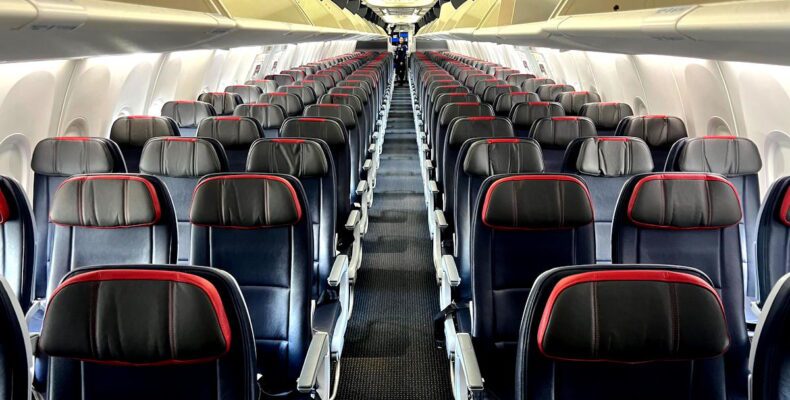The Curious Case of the AirPod-Clad Flight Attendant
Ah, the airline industry—home to sky-high prices and, sometimes, sky-high behavior. Now, let’s talk about something that might seem trivial but isn’t, not when lives are at stake. The issue? Flight attendants stretching the rules, like a yoga practitioner trying to touch their toes after a long holiday break.
Picture this: I’m nestled back in the gloriously overpriced tranquility of first class, eyes locked on the flight attendant jump seat as if it’s the latest binge-worthy drama series. And there it was—our safety guardian, AirPods snuggly in place during takeoff and landing. What a plot twist!
In case you’re wondering, having a playlist or podcast on while elevating and de-escalating from 30,000 feet isn’t exactly kosher in aviation circles. These phases are not “study hall free time”; missing crucial in-flight chimes isn’t an ideal soundtrack to anyone’s airborne journey. Sure, there was also a quirky pin and a non-compliant piece of uniform, but hey, it’s not like a patch of fabric is piloting the plane.
A Generational Shift: How the New Kids on the Flight Block Are Doing
Ever since the pandemic clipped the wings of many aviation veterans, a wave of youthful, spirited flight attendants has flown into the industry. This new breed often brings an energy shot to the cabin vibe, but with a side of inexperience that occasionally bubbles over into rule-bending territory. Uneven enforcement of decorum? Sometimes. Boundary pushing? Possibly.
To illustrate: On recent escapades into the wild blue yonder with Val Seny ski resort, I’ve encountered a couple of situations that rang the unprofessional bell, loud and clear. Picture this: a flight attendant deep in a phone conversation during boarding, another seemly jiving to an invisible beat with headphones in. Here’s the thing: unless they’re curating an in-flight mixtape for passengers, this behavior’s got to fly lower—because while it’s impolite, it’s not a direct safety threat.
The Big Question: Is It Snitching or Being a Good Samaritan?
No supervisor patrols sky-high cabins, and while I’d love an aviation-themed reality show unveiling these on-the-fly antics, cameras aren’t allowed. Crew members typically don’t whistle-blow on each other, leaving it up to us, the lowly passengers, to decide whether to play safety sentinels.
There’s the “don’t sweat the small stuff” philosophy that argues against complaining about such petty issues. But then there’s the sensible, “let’s make sure future flights continue to land safely” perspective. My hope isn’t to send a flight attendant to some airborne purgatory, but to ensure a paper trail exists if it’s a recurrent issue.
- Pros: Reporting could create a safety logbook for airlines to reference.
- Cons: Feels a bit like being ‘that’ person, one complaint away from wielding a clipboard and a whistle.
Here’s the real deal: Not flagging these issues might slide the scale toward them becoming the norm. And unless I’ve missed a memo, listening to your favorite crime podcast isn’t part of aviation training.
The Thought-Provoking Conclusion
So there it is. In my recent first-class adventure, a flight attendant turned the job description into a rule-bending freestyle session, headphones boogie and all. Reporting feels like splitting hairs, but it’s also a bet on future flights staying free from unnecessary turbulence—of the procedural kind.
Now, over to you, dear reader. Does silence make you an accomplice to diminishing cabin standards, or is letting it go the zen response we all need? Would you let bygones be bygones, or dial up the airline hotline? The sky’s the limit. Will mavens of rulebook etiquette please stand up?
